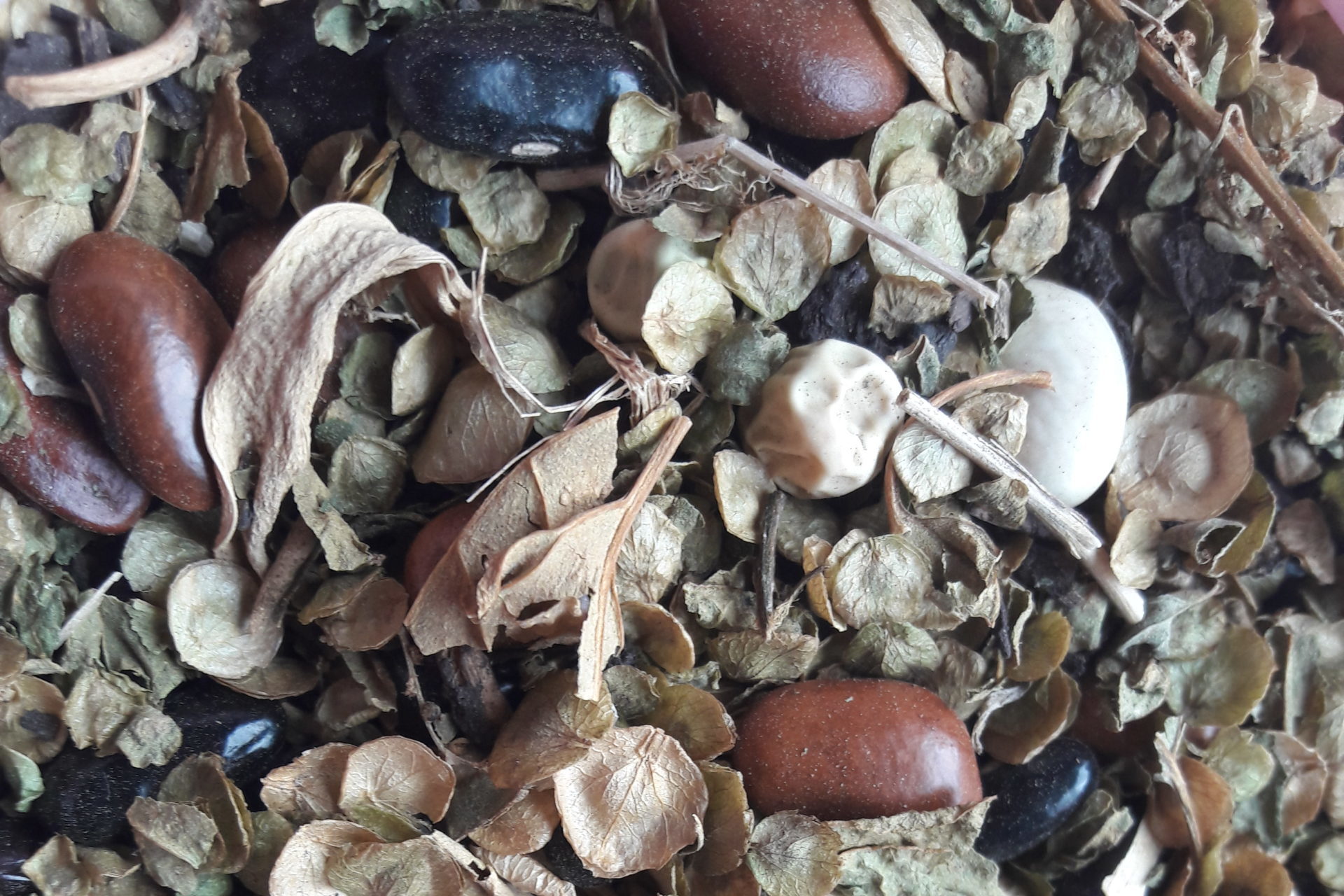
Why is seed sovereignty important?
Hosted by the Charlie Gray.
We heard from people involved in the Seed Sovereignty movement in the UK and explored why seed sovereignty is important, how Gaia’s seed sovereignty programme is supporting the movement and considered next steps.
There were short presentations/outlines to set the scene on the current state of politics, ethics, technical and legal situation for seed and why it is so important for our food systems and community resilience.
We heard from Sinead Fortune the Programme Manager for the Seed Sovereignty Programme, UK & Ireland, Pippa Chapman of thoseplantpeople, a small-holder, master horticulturist, organic gardener and grower and Charlie Gray, Northern Regional Coordinator for the Seed Sovereignty Programme and Maria Scholten the Highlands and Islands Scotland Coordinator.
Speakers/hosts:
Charlie Gray is the Coordinator for North England and has been working on food systems for more than 10 years in Yorkshire, supporting community growers and connecting with allotmenteers and farmers. She is based at Horton Community Farm Cooperative where she coordinates seed-saving and co-founded and works cooperatively with various food organisations locally as well as permaculture networks nationally. She is an ethnobotanist by training and interested in the power of seed sovereignty to transform food systems and build community resilience. As a Yorkshire plant-based eater particularly loves all manner of leafy vegetables and broccoli (fortunately)!
Sinéad Fortune supports the Gaia Foundation’s Seed Sovereignty programme, UK & Ireland at a national and international level. This includes engaging with advisors on legislation, coordinating the overall framework of the programme, creating opportunities for engagement and education, and developing partnerships with key organisations. With a background in food security, community empowerment and social enterprise, Sinéad’s previous work has been in community-based food production, sustainable food innovation and community funding.
Pippa Chapman has worked as Head Gardener of a large private estate, in public and private gardens, developed a huge range of skills and experience of many shapes, sizes and styles of garden. She has been researching good sustainable horticultural practice for many years now both during her Permaculture Design Course at the University of Bradford and the Diploma in applied Permaculture. At Fern Cottage she is developing mixed edible and flowering herbaceous borders. As well as propagating for their plant nursery, from which they sell plants to the public and for use in the gardens they create and manage, Pippa and her husband live with their children and grow their own food on their smallholding. This is on a north facing steep slope in West Yorkshire. They have been trialling and breeding different fruit and vegetable varieties, including trialling breeding blight-resistant potatoes, new squash varieties and experimenting with lots of regenerative techniques as well as saving seeds from their trials.
Richie Walsh, Regional Coordinator for Lowland Scotland joined the team in June 2020 as the Lowlands Scotland Seed Sovereignty Coordinator. He has an academic background in amenity horticulture, market gardening and plant conservation. He works professionally in the field of horticultural therapy and is a keen amateur botanist specialising in the heather family native to Europe. He has a passion for community food growing. Over the last decade, he has set up and run community gardens in Dublin, Amsterdam and Glasgow. When not digging in a garden or wandering and botanising in the countryside, Richie can be found brewing his own beer, mead and hedgerow wines.
You can read a blog post about the outcomes of the session here.
